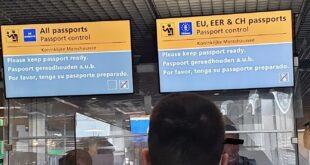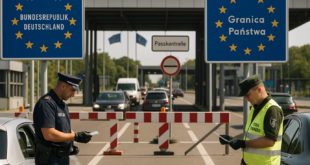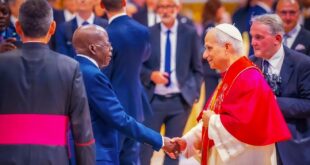Maisha e.V. hosted the International Conference on Political Participation of Migrant Women in Frankfurt recently. The event, featuring podium discussions and workshops, explored how women of African descent, migrant women in Germany and even refugees could better be involved in the political process to champion their interests.
The conference was organised in collaboration with ASA, a programme of Engagement Global gGmbH, in a North-South exchange programme that involved young women from Germany and Africa working as a team. The International Professional Counsellors Centre ( IPCC), based in Thika, Kenya, is the African partner. Kenya was chosen in view of the forthcoming general election in 2017.
In her welcome speech, Virginia Wangare, the founder and director of Maisha, said the aim of the conference was to find ways to encourage the effective involvement of all the migrant women in the decision-making process at every level of governance. “Our discussions will centre on practical and theoretical approaches to support the efforts of engaged women, to galvanise those who are still disconnected with mainstream politics and to shake governments out of traditional ways of thinking,” she said.
Among the speakers at the event were Elisabeth Kaneza, director of the Kaneza Initiative for Dialogue and Empowerment, Germany; Modi Ntawambe, chair of reflo-oe (a migrant women network), Brussels, Belgium; Lucy Wanjiku Kahenya, Kenyan university lecturer; and Figen Brandt, a director of damigra e.V. (National Organisation for Migrant Women) who is a newly elected member of the City of Frankfurt’s Parliament.
Others were Kerry Reddington, representing the Chair of the Communal Foreigners’ Representatives in Frankfurt, and Dr Garnet Parris, researcher and a coordinator of the African Diaspora in Europe.
Moderated by Jamila Adamou, the head of department for Gender and Migration at the Hessen Agency for Civic Education, Wiesbaden, and Susan Gitau, the Director of IPCC, Kenya, the conference revealed the issues surrounding the low-level participation of women in politics, including the cost of the political campaigns, women not trusting women in the political arena and obstacles placed in the way of women by men. Examples were given of women in Kenya who risked destroying their families when they sought to enter politics.
The conference recommended, among other measures, that civic education be particularly aimed at women and girls and that mentoring women politically should be a priority for men and women in politics. The importance of using social media to connect women was also highlighted, as the young women felt that this gave them a platform to discuss important issues with a large audience.
“Historically, it should be acknowledged that women have shown that they can lead, although the main opposition to that leadership has been men,” Ms Wangare. “One can look at the fact that a woman, Indira Gandhi, has led the world’s largest democracy, Margaret Thatcher was the British Prime Minister for more than 11 years and Benazir Bhutto was again seeking re-election when she was assassinated.”
The building of social networks primarily to engage women and keep them engaged was also highlighted. Speakers also appealed to men in politics to mentor women to avoid overburdening women politicians who are already facing their own challenges.
Vivian Asamoah
 THE AFRICAN COURIER. Reporting Africa and its Diaspora! The African Courier is an international magazine published in Germany to report on Africa and the Diaspora African experience. The first issue of the bimonthly magazine appeared on the newsstands on 15 February 1998. The African Courier is a communication forum for European-African political, economic and cultural exchanges, and a voice for Africa in Europe.
THE AFRICAN COURIER. Reporting Africa and its Diaspora! The African Courier is an international magazine published in Germany to report on Africa and the Diaspora African experience. The first issue of the bimonthly magazine appeared on the newsstands on 15 February 1998. The African Courier is a communication forum for European-African political, economic and cultural exchanges, and a voice for Africa in Europe.
































